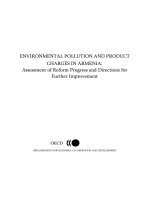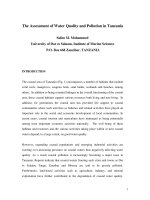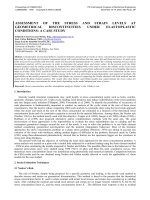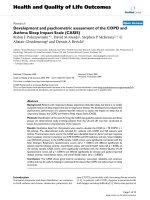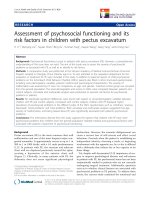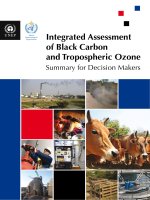Assessment of engineering properties of Aonla stone and seeds
Bạn đang xem bản rút gọn của tài liệu. Xem và tải ngay bản đầy đủ của tài liệu tại đây (442.42 KB, 9 trang )
Int.J.Curr.Microbiol.App.Sci (2019) 8(4): 2415-2423
International Journal of Current Microbiology and Applied Sciences
ISSN: 2319-7706 Volume 8 Number 04 (2019)
Journal homepage:
Original Research Article
/>
Assessment of Engineering Properties of Aonla Stone and Seeds
V.R. Wankhade1*, R.C. Verma1, B.L. Salvi2, N. Jain3 and H.K. Jain4
1
Department of Processing and Food Engineering, MPUAT, Udaipur (India)-313001
2
Department of Mechanical Engineering, 3Department of Electrical Engineering,
CTAE, MPUAT Udaipur, India
4
Rajasthan College of Agriculture, MPUAT Udaipur, India
*Corresponding author:
ABSTRACT
Keywords
Physical,
Gravimetric,
Frictional
properties, Rupture
force, Aonla stone,
Aonla seed
Article Info
Accepted:
17 March 2019
Available Online:
10 April 2019
In the present article an attempt was made to determine some engineering properties of
aonla stones and seeds. Stones and seeds were extracted manually from fresh and fully
mature aonla fruits. Physical, gravimetric, frictional and mechanical properties of aonla
stones, seeds and seed shell were assessed. Moisture content of aonla stone and seed was
found to be 51.36 and 8.63 % (wb) respectively. Size of aonla stone and seed was recorded
14.98 and 4.07 mm respectively. Percent sphericity of aonla stone and seed was found as
90.22 and 48.59 respectively. Volume and surface area of aonla stone 17.21 cm3 and
3221.9 mm2 respectively. Weight of aonla stone was obtained 3.31 g and thousand seed
weight of seeds was 17.21g. Aspect ratio of aonla stone and seed was 88.80 and 48.59 %
respectively. Bulk density of aonla stone, seed and seed shell was 0.310, 0.461 and 0.277
g/cc. Similarly true density was 0.729, 0.666 and 0.752 g/cc. Porosity of aonla stone, seed
and seed shell was 57.82, 30.75 and 63.08 % respectively. Coefficient of friction of aonla
stone, seed and seed shell on mild steel surface was 0.63, 0.63 and 0.66 respectively.
Similarly it was recorded as 0.60, 0.62 and 0.752 for stainless steel and 0.56, 0.53 and 0.63
for glass surface respectively. Rupture force of aonla stone was noted as 496 N.
Introduction
India is second largest producer of fruits and
vegetables in the world and is leader in
various fruits and vegetables area and
production. Due to perishable nature of
horticultural produce their value addition is
the prime necessity to preserve them for long
time at the time of glut and to make them
available in off season. Their processing
needs advanced mechanization and new
processing methodology to be developed for
ease of harvesting, handling, processing and
storage and to reduce the human drudgery.
Design of advanced machines and processes
requires knowledge of engineering properties
of these materials. India ranks first in the area
under production and productivity of aonla or
Indian gooseberry (Emblica officinalis
Gaertn). It belongs to genus Emblica of the
2415
Int.J.Curr.Microbiol.App.Sci (2019) 8(4): 2415-2423
family Euphorbiaceae and order Euphorbiales
(Wali et al., 2015). It is well known Indian
fruit for its medicinal and therapeutic
properties from the ancient time in India
(Kore et al., 2013). Aonla fruit is perishable
and thus needs to be processed after few days
of harvesting or else immediate marketing of
raw fruits is required. Raw aonla fruit is not
much acceptable by consumers because of its
high acidic nature and its astringent taste
(Priya and Khatkar, 2013). But the aonla
products like candy, supari, pickle, preserve,
triphala and chavaprash are very famous and
have huge demand in the market because of
their health benefits (Kore et al., 2013). Aonla
seed extracts also showed higher antioxidant
activity and both seed and seed coat have
good amount of major and micro minerals.
Seed powder has very good amount of P, K,
Mn, and Co. Fatty acid profile of seed and
seed coat showed that the major portion of
fatty acid is unsaturated in nature especially
rich in ω-3 fatty acid. Seed coat is a good
source of antioxidants and may be used for
value addition of products alone or in
combination with seed. Seeds being very
good source of protein, minerals, ω-3, ω-6
fatty acids can be used to enrich foods.
Combined utilization of aonla seed and seed
coat with better hydration and water retention
properties and higher P, Cr, Co, Fe, Mn and
ω-3 and ω-6 fatty acids levels than fruit
powder will be more fruitful (Mishra and
Mahanta, 2014). Following research was
conducted to determine the physical, textural
and frictional properties of aonla stone and
seed which can be used for design of
machinery and methods for aonla processing,
its transportation and storage.
Materials and Methods
For this study fresh mature aonla fruits were
procured from farms of College of Dairy and
Food Science Technology, MPUAT Udaipur
in the first week of December. To obtain the
aonla stone pulp of aonla fruits was extracted
by manually with the help of knife. Stones
were then dried in tray drier at temperature 50
°C to obtain the seeds. As the whole stones
dried they broke along the ridges with a
crackling sound and then brown seeds were
separated from the covers of stone manually.
Plate (1), (2) and (3) shows the picture of
dried aonla stones, aonla seeds and aonla seed
shell respectively. Fresh aonla stone, dried
aonla stone, aonla seeds and seed covers were
studied for their physical, gravimetric,
frictional and mechanical properties.
Moisture content
The moisture content of aonla stone and seed
was determined by using standard Association
of official analytical chemist (1984) method.
The experiment was replicated thrice for each
sample. Equation (1) was used for calculation
of moisture content.
(1)
Where,
W1 and W2 are initial and final weight of
sample (g)
Physical properties of aonla stone and seed
Size and sphericity of aonla stone and seed
Physical dimensions are needful for deciding
the machine parameters. Three linear
dimensions viz. length (L), width (W),
thickness (T) in mm, of aonla stone and seeds
were measured by using Vernier caliper
(PRECISE 0-300mm Digital Caliper) with
0.01 mm least count.
The geometric mean diameter or size, S of the
stone and seed was calculated by using
Equation (2), (Mohsenin, 1986).
2416
… (2)
Int.J.Curr.Microbiol.App.Sci (2019) 8(4): 2415-2423
Sphericity is the ratio of the geometric mean
diameter to the major diameter. Percent
sphericity of the aonla stone and seeds was
estimated
by
using
Equation
(3)
recommended by Mohsenin, (1986).
…
(3)
Where,
S is the size of aonla stone/ seed (mm),
L, W, and T are the length, width and
thickness of stone/seed, mm, respectively.
Aspect Ratio (Ra)
It is the term used to express the shape of
material. The aspect ratio is the ratio between
the sizes in different directions i.e. Width to
Length. The aspect ratio (Ra) of aonla stone
and seed was obtained by using Equation (4),
(Owolarafe et al.,2007).
Thousand seed weight
Thousand seed weight was determined by
weighing 100 seeds in an electronic precision
balance (Sartorius AG Germany, max 3200 g
with accuracy 0.01 g) and then multiplying by
10 to get the mass of 1,000 seeds (Malik and
Saini, 2016).
Volume and surface area of aonla stone
Volume of aonla stone was calculated by
considering the geometry of the object similar
to the geometrical shape. Knowing the values
of length, width and thickness, the volume
and surface area of the aonla stone were
calculated by considering the geometry as to
be oblate spheroid by using Equations (5 and
6) respectively (Mohsenin, 1986).
…
(4)
Where,
a and b = Major and minor semi axis of the
ellipse of rotation (mm)
V = Volume of aonla stone (cc),
S = Surface area of aonla stone (mm2) and
e = Eccentricity, calculated as Equation (7)
Where,
Ra = Aspect ratio (%)
L = Length of stone/seed (mm)
W = Width of stone/seed (mm)
…
(7)
Gravimetric properties of aonla stone and
seed
Stone weight
Aonla stones, stones were removed manually
from the fully mature fruits and weighed for
the investigation.
An electronic precision balance (Sartorius AG
Germany, max 3200 g with accuracy 0.01 g)
was used to record the weight. The average
weight of 50 samples was recorded as stone
weight.
Bulk density (ρb)
Bulk density is the ratio of the weight of a
sample to its total volume. Bulk density of
aonla stone, seed and seed shell was
determined by using the following Equation
(8) (Mohsenin 1986).
2417
…
(8)
Int.J.Curr.Microbiol.App.Sci (2019) 8(4): 2415-2423
Where,
ρb = Bulk density (g/cc),
W = Weight of stone/seed/seed shell (g)
V = Volume of measuring cylinder (cc).
True density (ρt)
True density of aonla stone, seed and seed
shell was also determined by toluene
displacement method using the equation (9).
The observations were replicated thrice.
… (9)
Where,
ρt = True density, (g/cc)
W = Weight of stone/seed/seed shell, (g)
V = Volume of liquid displaced, (cc).
(2003). An experimental setup was consisting
of frictionless pulley fitted on a frame,
loading pan, test surfaces, and bottomless and
topless box was used. The box attached by
string parallel to the surface of the material
and pass over the frictionless pulley with pan
hanging from it. For the determination of
coefficient of friction of aonla stone, seed and
seed shell of known weight was taken in the
test box; then it was tied to the string attached
to loading pan. The pan was loaded with
weights until sample began to slide on the
surface. Weight in the pan was recorded, and
the coefficient of friction was calculated by
using Equation (11). Coefficient of friction of
all the samples was also determined by
changing the test surface using as mild steel,
stainless steel and glass. The experiments
were replicated 5 times.
…
(11)
μ=
Porosity (P)
Porosity was calculated by using bulk and
true densities. Equation (10) was used for
calculation of porosity of aonla stone, seed
and seed shell.
Where,
μ = Coefficient of friction
F = Frictional force, g
Nf = Normal force, g
Rupture force of aonla stone
…
(10)
Where,
P = Porosity, (%)
ρb = Bulk density (g/cc)
ρt = True density (g/cc)
Frictional properties of aonla stone, seed
and seed shell
Coefficient of friction of aonla stone, seed
and seed shell
Coefficient of static friction is the ratio of
frictional force to the normal force. Static
coefficient of friction of aonla stone, seed and
seed shell was determined by using the
method given by Kaleemullah and Kailappan
Rupture force of dried aonla stone was
measured using Stable micro system TA-HD
plus textural analyzer (Texture Technologies
Corp., UK). 75 mm cylinder probe was used
for a compression test. Probe was attached to
probe carrier. The test was conducted at a test
speed of 0.5 mm/s and at load cell of 5kg. The
load required for breaking of dried aonla
stone was recorded. Average of 10 sample
data was considers as rupture force expressed
in N. The testing parameters of texture
analyzer were as following (Li et al., 2016).
Plate (3) shows the experimental setup of
aonla stone compression test.
Pre test speed
Test speed
2418
:
:
1 mm/s
2 mm/s
Int.J.Curr.Microbiol.App.Sci (2019) 8(4): 2415-2423
Post test speed :
Distance
:
Trigger
auto :
type
Probe Type
:
Load cell
:
2 mm/s
5 mm
50 g
Gravimetric properties of aonla fruits,
stone and seed
Stone weight and thousand seed weight
75 mm cylinder probe
(p/75)
5 kg
Results and Discussion
Stone weight was found to be in the range of
2.08 to 3.29 g while thousand seed weight
ranged between 22.20 g to 23.40 g with their
average values as 3.29 g and 22.84 g
respectively (Table 2).
Moisture content
Volume and surface area of aonla stone
Moisture content of aonla stone and seed was
found in the range of 46.89 to 55.15 and 8.12
to 8.93 % (wb) respectively. Mean of stone
and seed moisture content was 51.36 and 8.63
% (wb) respectively. Data of moisture content
with standard deviation is presented in Table
1.
Volume and surface area of aonla stone was
found to vary in the range from 9.86 to 21.24
cm3 and 2227.85 to 3708.52 mm2 with
average values of 17.21cm3 and 3221.94 mm2
respectively (Table 2).
Bulk density (ρb)
Physical properties of aonla stone and seed
Size and sphericity of aonla stone
Physical dimensions of stone and seeds were
measured to obtain the size and sphericity of
it. Three linear dimensions of aonla stone and
seed were measured and reported as mean
value as 16.61, 14.74, 13.75 mm and 6.81,
3.30, 3.01 mm respectively. Size and percent
sphericity of aonla stone and seed were
obtained as 14.98 mm, 90.22 and 4.07 mm,
59.84 respectively. Mean and standard
deviation of all the mentioned parameters are
presented in Table 1.
Aspect ratio (Ra)
Aspect ratio of aonla stone and seed was
determined and reported as mean value 88.80
and 48.59 % respectively (Table 2). High
aspect ratio of stone indicates its rolling and
sliding ability on flat surface. Aspect ratio
value close to sphericity indicates that it
might undergo rolling and sliding action on
flat surface.
Average bulk density of aonla stone, seed and
seed shell variegated between 0.294 to 0.320
g/cc, 0.459 to 0.464 g/cc and 0.250 to 0.311
g/cc with average values as 0.307, 0.461,
0.277 g/cc respectively (Table 3).
Higher value of bulk density was recorded for
aonla seed compare to aonla stone and seed
shell.
True density (ρt)
True density of aonla stone, seed and seed
shell was found to vary from 0.726 to 0.772
g/cc, 0.655 to 0.677 g/cc and 0.737 to 0.778
g/cc and average was noted as 0.729, 0.673,
0.752 g/cc respectively (Table 3).
Porosity (P)
Porosity of aonla stone, seed and seed shell
ranged from 57.35 to 60.26 %, 29.4 to 31.88
and 58.09 to 67.89 % and its average was
found as 57.823, 30.756 and 63.089 %
respectively (Table 3).
2419
Int.J.Curr.Microbiol.App.Sci (2019) 8(4): 2415-2423
Frictional properties of aonla stone and
seed
Coefficient of friction of aonla fruit, stone,
seed and seed shell
The mean values of coefficient of friction of
aonla stone, seed and seed shell on mild steel
surface were found as 0.63, 0.63 and 0.66
respectively while the values for stainless
steel were 0.60, 0.62 and 0.62 respectively
and for glass were 0.56, 0.53, and 0.63
respectively. Data revealed that mild steel
exerts more friction to stone, seeds and seed
shell compare to stainless steel and glass.
Aonla seed shell and stone has more values of
coefficient on all the surfaces; it may be due
to its rough and sticky surface texture. Data
recorded for coefficient of friction of aonla
stone, seed and seed shell are presented in
Table 4.
Table.1 Moisture content and physical properties of aonla stone and seed
Property
Aonla
stone
Aonla
seed
Moisture
content
%(Wb)
51.36± 1.34
Length
Width
Thickness
Size
Sphericity
(mm)
16.61 ± 1.07
(mm)
14.74 ±1.24
(mm)
13.75 ±1.04
8.63 ± 0.44
6.81 ± 0.34
3.30 ± 0.20
3.01 ± 0.23
(mm)
14.98 ±
0.90
4.07 ± 0.17
(%)
90.22 ±
2.67
9.84 ± 2.03
Table.2 Weight, volume and surface area of aonla stone and seed
Property
Aonla stone
Aonla seed
Weight
g
3.31 ± 0.43
-
1000 seed
mass
g
22.84 ± 0.36
Volume
Surface area
Aspect ratio
(cm3)
17.21 ± 3.10
-
(mm2)
3221.9 ± 400.4
-
(%)
88.80 ± 0.06
48.59 ± 3.51
Table.3 Density and porosity of aonla stone, seed and seed shell
Property
Aonla stone
Aonla seed
Aonla seed shell
Bulk density
g/cc
0.310±0.013
0.461 ± 0.002
0.277 ± 0.03
True density
g/cc
0.729 ±0.04
0.666 ± 0.010
0.752 ± 0.02
Porosity
%
57.823 ± 2.24
30.756 ± 1.433
63.089 ± 4.896
Table.4 Coefficient of friction (μ) of aonla stone, seed and seed shell on various surfaces
Property
Aonla stone
Aonla seed
Aonla seed shell
Mild steel
0.63 ± 001
0.63 ± 0.01
0.66 ± 0.01
Stainless steel
0.60 ± 0.02
0.62 ±0.01
0.62 ± 0.02
2420
Glass
0.56 ± 0.02
0.53 ± 0.01
0.63 ± 0.02
Int.J.Curr.Microbiol.App.Sci (2019) 8(4): 2415-2423
Plate.1,2&3 Dried aonla stones, aonla seeds & seeds shell
Plate 4 Experimental set up for testing of rupture force of aonla stone
2421
Int.J.Curr.Microbiol.App.Sci (2019) 8(4): 2415-2423
Fig.1 Aonla stone rupture force test sample
Rupture force of aonla stone
The rupture force of aonla stone is needed to
estimate the force required for decortication
of aonla stones to extract the seeds. Figure 1
is presented as sample of software generated
graph of force required to rupture the aonla
stones expressed in N. Rupture force of aonla
stones was obtained in the range of 309 to 700
N. Mean value of aonla stone rupture force
was 496 N.
In conclusion, aonla is having high
productivity and processing potential due to
its multiple health benefits. Seeds of aonla are
also rich in antioxidant properties. Knowledge
of engineering properties of aonla stone and
seeds is helpful in development of technology
related to aonla stone and seeds. Physical
properties of aonla stone and seed are helpful
for design of machineries for aonla stone
decortication, and seed processing. Size and
shape of stones and seeds can be used for
designs of screens and hoppers. Gravimetric
properties of aonla stone’s and seed’s are
needed for designing of storage and transport
facility of it. Knowledge of frictional
properties of aonla stones and seeds helped
for design of conveyors and hoppers. Rupture
force is needed for estimation of force
required for decortication of aonla stones.
Results obtained in this investigation will be
helpful in design of aonla stone decortication
and seed processing assembly.
Acknowledgement
The authors are thankful to Dean, College of
Technology and Engineering, MPUAT
Udaipur (India) for providing necessary
facilities to conduct the research.
References
AOAC, 1984. Official Methods of Analysis.
AOAC Press, Washington, D.C.
Kaleemullah S. and Kailappan R. 2003.
Geometric and morphometric properties
of chillies. International Journal of
Food Properties, 6: 481-498.
Kore V. T., Devi H. L. and Kabir J. 2013.
Packaging storage and value addition of
aonla an underutilized fruit in India.
Fruits, 68: 255–66.
Li, Rui., Jun, Peng., Sun, S., Al-Mallahi.,
Ahmad and Fu, Longsheng. 2016.
Determination of selected physical and
mechanical properties of Chinese jujube
fruit and seed. Agricultural Engineering
International: CIGR Journal, 18:294-
2422
Int.J.Curr.Microbiol.App.Sci (2019) 8(4): 2415-2423
300.
Malik, M.A. and Saini, C.S., 2016.
Engineering properties of sunflower
seed: Effect of dehulling and moisture
content. Cogent
Food
&
Agriculture, 2:1-11.
Mishra, P. and Mahanta, C.L. 2014.
Comparative analysis of functional and
nutritive values of amla (Emblica
officinalis) fruit, seed and seed coat
powder. Am J Food Technol, 9:151-161.
Mohsenin, N. N. 1986. Physical properties of
plant and animal material. Gordon and
breach science publishers, New
York.pp.79-127
Owolarafe, O.K., Olabige, M.T. and
Faborode, M.O., 2007. Physical and
mechanical properties of two varieties
of fresh oil palm fruit. Journal of Food
Engineering, 78:1228-1232.
Priya, M.D. and Khatkar, B.S. 2013. Effect of
processing methods on keeping quality
of aonla (Emblica officinalis Gaertn.)
preserve. International Food Research
Journal. 20:617-622.
Wali, V.K., Bakshi, P., Jasrotia, A., Bhushan,
B. and Bakshi, M. 2015. Aonla.
SKUAST- Jammu. An entire book.
How to cite this article:
Wankhade, V.R., R.C. Verma, B.L. Salvi, N. Jain and Jain, H.K. 2019. Assessment of
Engineering Properties of Aonla Stone and Seeds. Int.J.Curr.Microbiol.App.Sci. 8(04): 24152423. doi: />
2423


